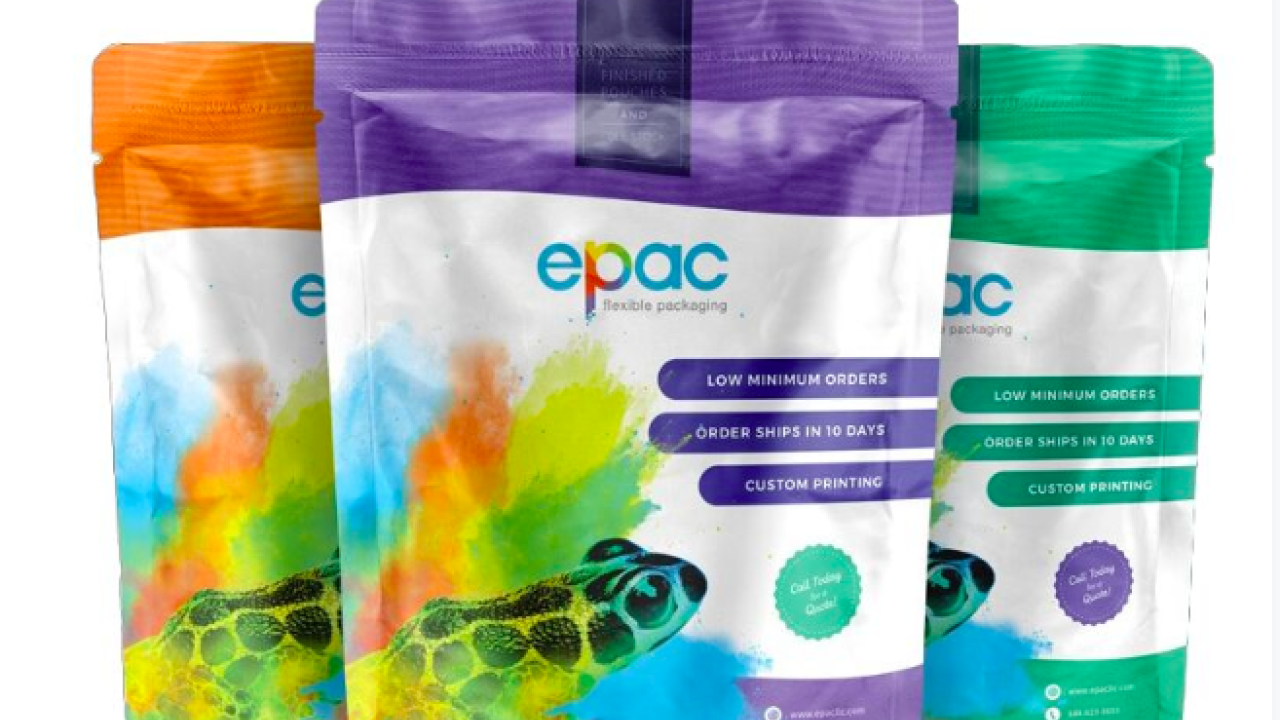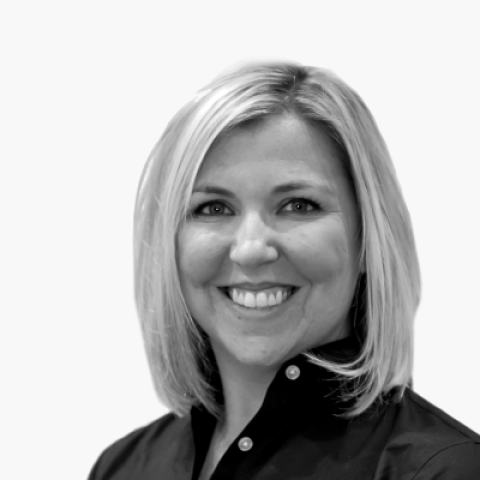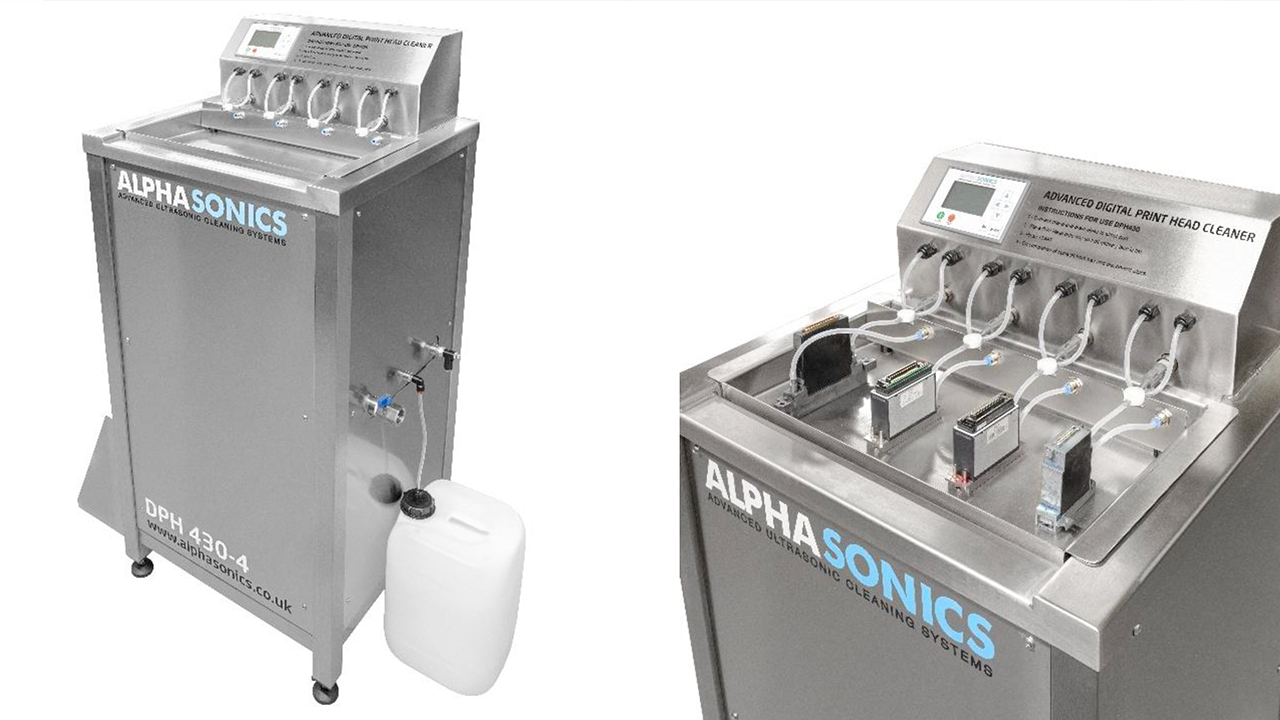ePac expands digital platform

ePac Flexible Packaging, an all-digital flexible packaging converter, has purchased the 10 additional HP Indigo 20000 digital presses to expand its operations across the US. The order quadruples production capacity for ePac.
It’s a bullish and impressive capital investment for a start-up company that got its start less than two years ago, and which has gone on an aggressive investment blitz that shows no sign of slowing.
History
ePac was launched May 2016 with a location in Middleton, Wisconsin. In its tool shed was one HP Indigo 20000 digital press, a solventless laminator, pouch maker, rewinder and slitter and a pre-press operator. They were ready to go. They just needed customers.
‘When we began commercial operations, we started with no customers,’ says ePac CMO Carl Joachim. ‘All we had at the start was what we thought was a great idea and business model, and some assets to start the business with’.
ePac did some limited marketing but initially relied primarily on word of mouth. The orders started rolling in, as customers saw the value ePac could provide: small run lengths, multiple SKUs, on-demand printing and fast turnaround. In a few short months, a second HP Indigo 20000 was added.
‘ePac really helps small and medium size businesses by simplifying how they buy flexible packaging,’ says Jack Knott, ePac CEO. ‘Turnaround time of 10 business days, low minimums, customization, photo-quality graphics, and the ability to print on demand differentiate ePac from conventional flexible packaging converters. ePac’s entire service delivery model is built to make selecting and purchasing flexible packaging fast and easy.’
ePac primarily targets small- and medium-sized companies and regional brands and produces stand-up and lay-flat pouches and roll stock.
By December 2017, ePac opened a second location in Boulder, Colorado. Six months before opening the company added a local sales office, with orders fulfilled by the Middleton location. Once the plant opened it already had customers, a sales pipeline, and two months later added a second press to keep up with demand.
ePac recently revealed a partnership with Karlville for a manufacturing facility in Miami. (see boxout).
In addition to Miami, the 10 new units will be deployed coast-to-coast in new regional facilities opening in Chicago, Houston and Los Angeles. Its new HP Indigo 20000 presses are slated to be installed in these market hubs in 2018.
Since its release in 2014, converters around the world have purchased more than 115 HP Indigo 20000 digital presses, the company says. The 30-inch HP Indigo 20000 can print virtually any sized flexible packaging application with unlimited variation for growing SKUs – a principle upon which ePac built its business.
‘Digital printing is the core enabling technology we have built ePac on,’ added Knott. ‘With the HP Indigo 20000 serving as the foundation of our manufacturing platform. ePac’s collaboration with HP is fundamental to our growth strategy, as we look to adding ePac sites in the months ahead.’
‘Drastically different’
For what Joachim calls a ‘drastically different’ business model, ePac ironically almost got its start in a conventional facility.
One of the first investors was Emerald Packaging, a California-based flexible packaging company that beta-tested the HP Indigo 20000.
It turned out the technology just didn’t fit with its conventional processes, so that unit later was transferred to the Middleton facility in what launched ePac.
What ePac quickly realized was that job sizes were shrinking and becoming unsustainable and unprofitable for many traditional wide web CI flexo and gravure printers.
‘This was obviously quite different than the high-speed, wide-web operation that [Emerald Packaging] built its business around,’ Joachim said. ‘Their conventional infrastructure and approach to the market were different enough that we felt that starting with a greenfield would allow us to focus on building a new business.’
ePac’s principals Joachim, Knott and Virag Patel all bring different backgrounds to the team. Knott and Patel have extensive experience in flexible packaging, and Joachim in digital printing.
‘Over the past 25 years I’ve seen digital disrupt virtually every segment of the print market’, Joachim said. ‘The only market segment it hadn’t really touched at the time ePac was created was flexible packaging, but we’re quite sure it will follow the same path of accelerated growth that other industries have seen.’
Smithers Pira forecasts growth in flexible packaging, with digital forecast to increase at more than 17.1 percent CAGR in the five-year period to 2022, when this market is expected to reach more than $750 million USD.
Stay up to date
Subscribe to the free Label News newsletter and receive the latest content every week. We'll never share your email address.


